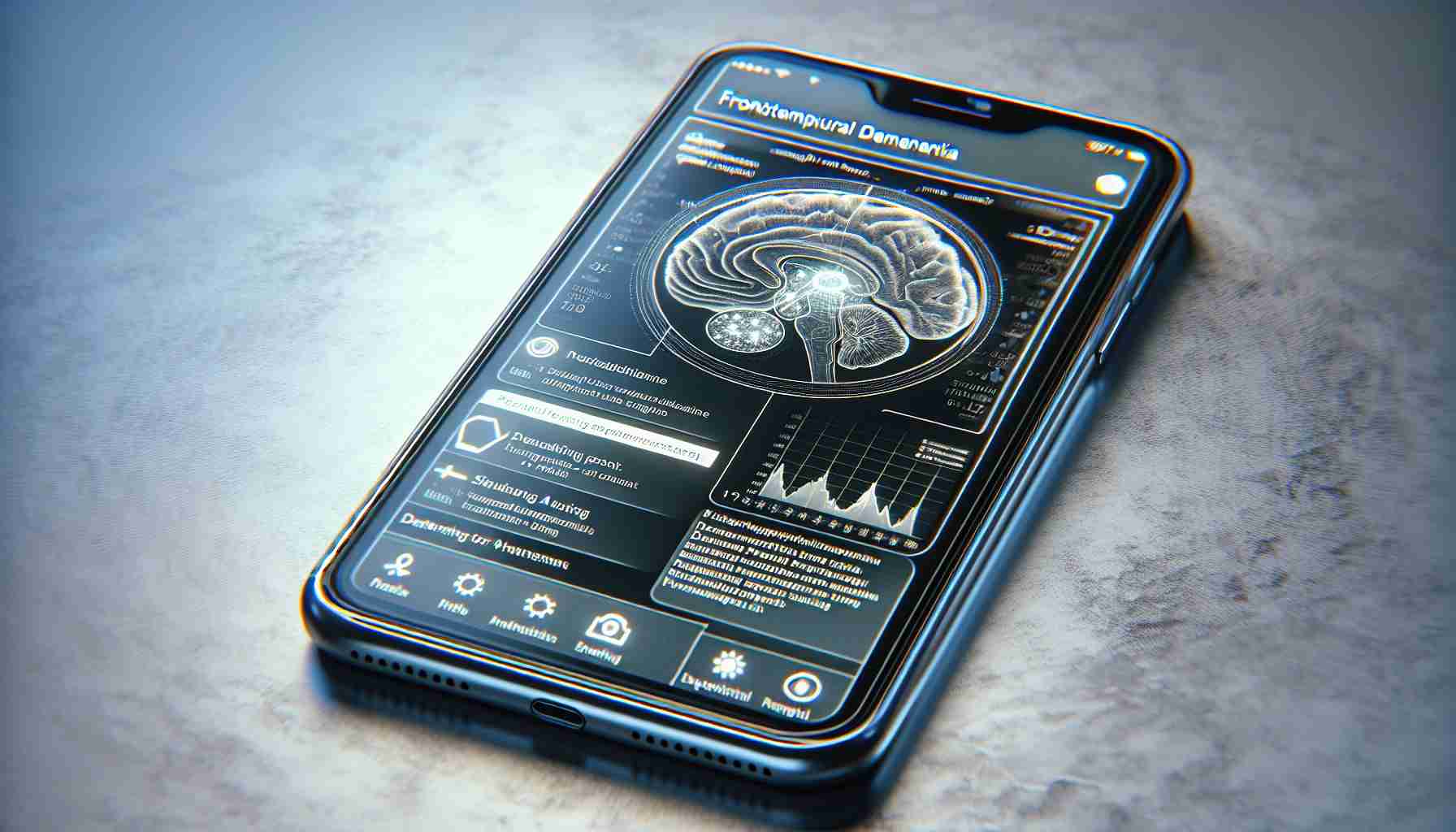A cutting-edge study has unveiled a potential breakthrough in the detection of frontotemporal dementia (FTD), a neurological disorder that affects cognitive skills such as planning and impulse control. Researchers at the University of California, San Francisco, led by Professor Adam Boxer, collaborated with software company Datacubed Health to develop a smartphone app that could accurately detect FTD.
The innovative app records users’ speech while they engage in various cognitive tests, including assessments of walking, balance, and language skills. What makes this app particularly promising is its ability to detect the earliest stages of FTD, a challenge often faced in traditional in-clinic evaluations.
In the study published in JAMA Network Open, 360 adults with a high genetic risk of developing FTD participated. The results revealed not only the app’s accuracy in detecting dementia but also its potential to identify the condition at an earlier stage. This app could revolutionize the study and treatment of FTD, with more than 30 clinical trials already underway or in progress.
Traditionally, diagnosing FTD in its early stages has been difficult due to its similarity to psychiatric disorders. However, the ease of use and validity of the smartphone app in remotely assessing cognitive function has garnered excitement from researchers. Although the app is not yet available to the public, its future implications are significant.
By providing a convenient and accessible method for patients to participate in research and receive cutting-edge treatments, this app could alleviate the burden on patients, caregivers, and clinicians. In-person assessments can be time-consuming and demanding, making smartphone assessments a game-changer in the field of dementia clinical trials.
As the research progresses, the implementation of this smartphone app has the potential to lead to earlier detection and improved outcomes for individuals living with frontotemporal dementia. The promising results and the app’s potential to monitor treatment effects indicate a promising future for the study and treatment of this debilitating disorder.
Frontotemporal dementia (FTD) is a neurological disorder that affects cognitive skills and is often difficult to diagnose in its early stages. However, a groundbreaking study conducted by the University of California, San Francisco, in collaboration with Datacubed Health, has developed a smartphone app that shows promise in accurately detecting FTD.
The app works by recording users’ speech while they engage in various cognitive tests, including assessments of walking, balance, and language skills. What sets this app apart is its ability to detect the earliest stages of FTD, which is a challenge in traditional in-clinic evaluations.
In a study published in JAMA Network Open, 360 adults with a high genetic risk of developing FTD participated. The results not only demonstrated the app’s accuracy in detecting dementia but also its potential to identify the condition at an earlier stage. This breakthrough has the potential to revolutionize the study and treatment of FTD, with over 30 clinical trials already underway or in progress.
One of the main difficulties in diagnosing FTD early on is its similarity to psychiatric disorders. However, the smartphone app’s user-friendliness and validity in remotely assessing cognitive function have generated enthusiasm among researchers. Although the app is not yet available to the general public, its implications for the future are significant.
The introduction of this app could offer a convenient and accessible method for patients to participate in research and receive state-of-the-art treatments. This would help alleviate the burden on patients, caregivers, and clinicians, as in-person assessments can be time-consuming and demanding. By utilizing smartphone assessments, the field of dementia clinical trials could undergo a transformative shift.
As the research progresses further, the implementation of this smartphone app holds the potential to lead to earlier detection and improved outcomes for individuals living with frontotemporal dementia. The auspicious results and the app’s capability to monitor treatment effects all point towards a promising future in the study and treatment of this debilitating disorder.
Related links:
– University of California, San Francisco
– JAMA Network Open
– Datacubed Health
